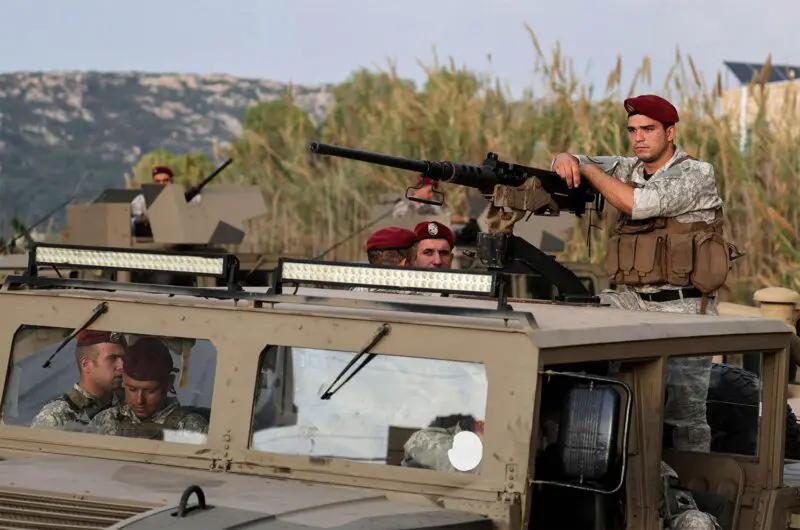Army faces delicate task in Lebanon peace push
Lebanese army faces delicate balancing act in potential Hezbollah truce

The Lebanese Armed Forces (LAF) finds itself in an increasingly complex position as efforts intensify to broker a truce in southern Lebanon, with questions mounting over its ability to keep the region free of Hezbollah weapons, according to seven sources familiar with the matter.
Military experts and diplomats say the army, whilst significantly weaker than the Iran-backed group, would need to deploy thousands of troops southward following any ceasefire agreement – a move that would require Hezbollah’s tacit approval.
“The Lebanese army faces an exceptionally sensitive situation. Unlike conventional armed forces elsewhere, it must operate alongside another military presence in the country”, said retired brigadier general Hassan Jouni, referring to Hezbollah’s unique status as a recognised resistance force.
The Lebanese government and Hezbollah have reportedly agreed to an American truce proposal, though with certain reservations, a senior Lebanese official told Reuters. Any lasting agreement would hinge on Hezbollah’s backing, given its considerable military capabilities and influence over state affairs.
US officials have pressed for more direct confrontation between the army and Hezbollah, according to two Western diplomats and a source close to the military. However, such action could risk internal conflict, given Hezbollah’s military supremacy, political representation, and support among Shiite service members.
Implementation challenges
The cornerstone of any enduring peace arrangement would involve better enforcement of UN Security Council Resolution 1701, which ended the 2006 conflict. The resolution calls for southern Lebanon to be free of non-state weapons and envisions up to 15,000 Lebanese troops in the region.
British-donated watchtowers meant for southern deployment remain warehoused near Beirut, awaiting diplomatic agreement on installation methods acceptable to both Israel and Hezbollah, according to multiple sources.
The army’s predicament is further complicated by its reliance on foreign funding, particularly from Washington. Last year, the US began providing direct salary support after Lebanon’s financial crisis severely impacted military operations.
Army chief Joseph Aoun faces mounting pressure to maintain military cohesion whilst preparing for post-truce deployment, sources say. The force’s approximately 40,000 personnel are divided equally among Sunni Muslims, Shiite Muslims and Christians, making it a rare symbol of national unity.
Funding concerns
Recent international aid has faced delays, with disagreements emerging over a £200 million support package pledged in Paris. American officials reportedly seek to withhold funds pending a ceasefire agreement, whilst Lebanese authorities argue recruitment must precede implementation.
The US State Department maintains its commitment to supporting Lebanese state institutions, though some American lawmakers have previously attempted to condition military aid on restrictions against Hezbollah’s political activities.
Since 2008, government policy has recognised Hezbollah as a legitimate armed entity alongside the military, without clearly defining its scope. “This situation requires internal political agreement to determine Hezbollah’s security and military role in Lebanon”, Jouni concluded.
How to submit an Op-Ed: Libyan Express accepts opinion articles on a wide range of topics. Submissions may be sent to oped@libyanexpress.com. Please include ‘Op-Ed’ in the subject line.
- Tunisia begins major migrant camp clearance - April 05, 2025
- Morocco and Mauritania airlines sign strategic partnership agreement - April 05, 2025
- Libya under Russian and Turkish occupation, says Al-Koni - April 05, 2025


